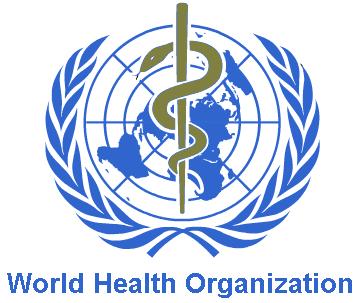

Antrax: Dealing With Animal-to-man Infections
FeaturedSpecial Reports June 30, 2023 Dianabasi Effiong

An Analysis by Dianabasi Effiong, News Agency of Nigeria (NAN)
There is no doubt that Nigeria has recorded notable improvements in healthcare through research and treatment.
This is in spite of notable challenges like industrial actions, brain drain, poor infrastructure, water, electricity, dearth of manpower among others.
A drawback on such improvements often results from outbreak of diseases and infections including Lassa fever, Cholera, sleeping sickness, yellow fever, tuberculosis, leprosy, HIV/AIDS, COVID-19 and Ebola.
Recently, the threat of Anthrax – a disease transmitted from animals to humans just like some of the aforementioned health challenges, has been reported from countries contiguous to Nigeria.
According to the Centers for Disease Control and Prevention (CDC), Anthrax is a serious infectious disease caused by gram-positive, rod-shaped bacteria known as Bacillus anthracis.
It occurs naturally in soil and commonly affects domestic and wild animals around the world. People can get sick with anthrax if they come in contact with infected animals or contaminated animal products.
The fear of possible spread of anthrax from neighbouring West African countries to Nigeria, as real as it is, added to the challenges of healthcare in Nigeria coming on the heels of Ebola, COVID-19 pandemic.
Recently, the Federal Government, through Ernest Umakhihe, the Permanent Secretary, Federal Ministry of Agriculture and Rural Development, alerted residents and citizens on the outbreak of anthrax disease in some neighbouring countries.
It stated that the disease was widespread in northern Ghana, bordering Burkina Faso and Togo.
It also advised that Nigerians should henceforth desist from the consumption of hides, also known as `ponmo’, `ikpa’ or `kanda’ locally in the country.
“Signs of anthrax are flu- like symptoms such as cough, fever, muscle aches and if not diagnosed and treated early, leads to pneumonia, severe lung problems, difficulty in breathing, shock and death,’’ the statement added.
The CDC explained that people could get sick with anthrax if they came in contact with infected animals or contaminated animal products or by inhaling spores.
The CDC also stated that anthrax symptoms ranged from a skin ulcer with a dark scab to difficulty breathing.
It added that although the disease is treatable by a medical professional, the inhaled anthrax is harder to treat and can be fatal.
Also, the World Health Organisation (WHO) said the disease, transmissible from animals to humans, affected ruminants such as cows, sheep and goats.
The federal government also explained that being a bacterial disease, anthrax would respond to treatment with antibiotics and supportive therapy.
However, the alert, especially the advice against the consumption of those products, was not taken lightly in the country.
Some consumers, traders and experts spoke with the News Agency of Nigeria (NAN) in separate interviews at Onipanu, Ijora, Ebute Metta and Ikorodu areas of Lagos State as to whether ponmo should be banned or not.
They said that banning ponmo would further promote economic hardship on those who could not afford a better alternative.
According to them, `ponmo’ contains and can provide beneficial nutrients to the human body.
Some of them also told NAN that though ponmo contains low nutritional value when compared to other protein sources because it does not contain all essential amino acids, it contained a lot of collagen.
According to experts, collagen is the most abundant protein in our bodies.
They also argued that because our bodies produce collagen, it is not essential that we must eat collagen for growth.
They also said that as one grows older, one’s ability to produce collagen reduces leading to appearance of wrinkles.
For the Association of Medical Laboratory Scientists of Nigeria, Nigerians should heed the government’s directive to be wary of consuming roasted cow hide.
According to its National President, Prof. James Damen, this is to avoid contracting anthrax disease
Damen also told NAN that government’s warning would guard against the outbreak of anthrax disease recorded in neighbouring countries.
“In as much as Nigerians love eating `ponmo’, we should be careful with its consumption because one cannot rule out the migration of animals from one country to the other.
“Anyone who eats `ponmo’ from a cow that is infected with anthrax would definitely come down with the disease; so it is in our best interest not to consume `ponmo’,’’ he said.
Damen, who lauded the government’s swift reaction in alerting Nigerians to anthrax outbreak in neighbouring countries, said measures should be put in place to address any possible outbreak in Nigeria.
Also, Dr Salami Akorede, the Director, Dietetics Department at Obafemi Awolowo University Teaching Hospital, Ile-Ife, Osun, called on NAFDAC to regulate the mode of processing cow hide into `ponmo’ for human consumption.
He told NAN at Ile-Ife that the popular mode of burning cow hide on naked fire to produce `ponmo’ was deleterious to health.
According to him, the process of burning cow hide on naked fire makes the product to become potential source of cancer when consumed regularly.
He said: “Where it is well processed, `ponmo’ is a good source of protein, water, energy and micronutrients which contain fibre that aid digestion.
“In producing `ponmo’, processors should regulate the exposure of the cow hide to naked fire so as to minimise the formation of nitrates on them.’’
He said that `ponmo’ could also serve as alternative to meat since it was affordable.
He also said that consumers should take `ponmo’ alongside other protein-rich sources like meat, fish, crayfish and soya balls to complement their protein supply.
The Director-General, Nigerian Institute of Medical Research, Prof. Babatunde Salako, also told NAN in Lagos that more funds should be made available to enhance health research that would proffer solutions to health issues peculiar in Nigeria.
He added that the establishment of a Medical Research Council would help to scale up health research.
(NAN Features)

